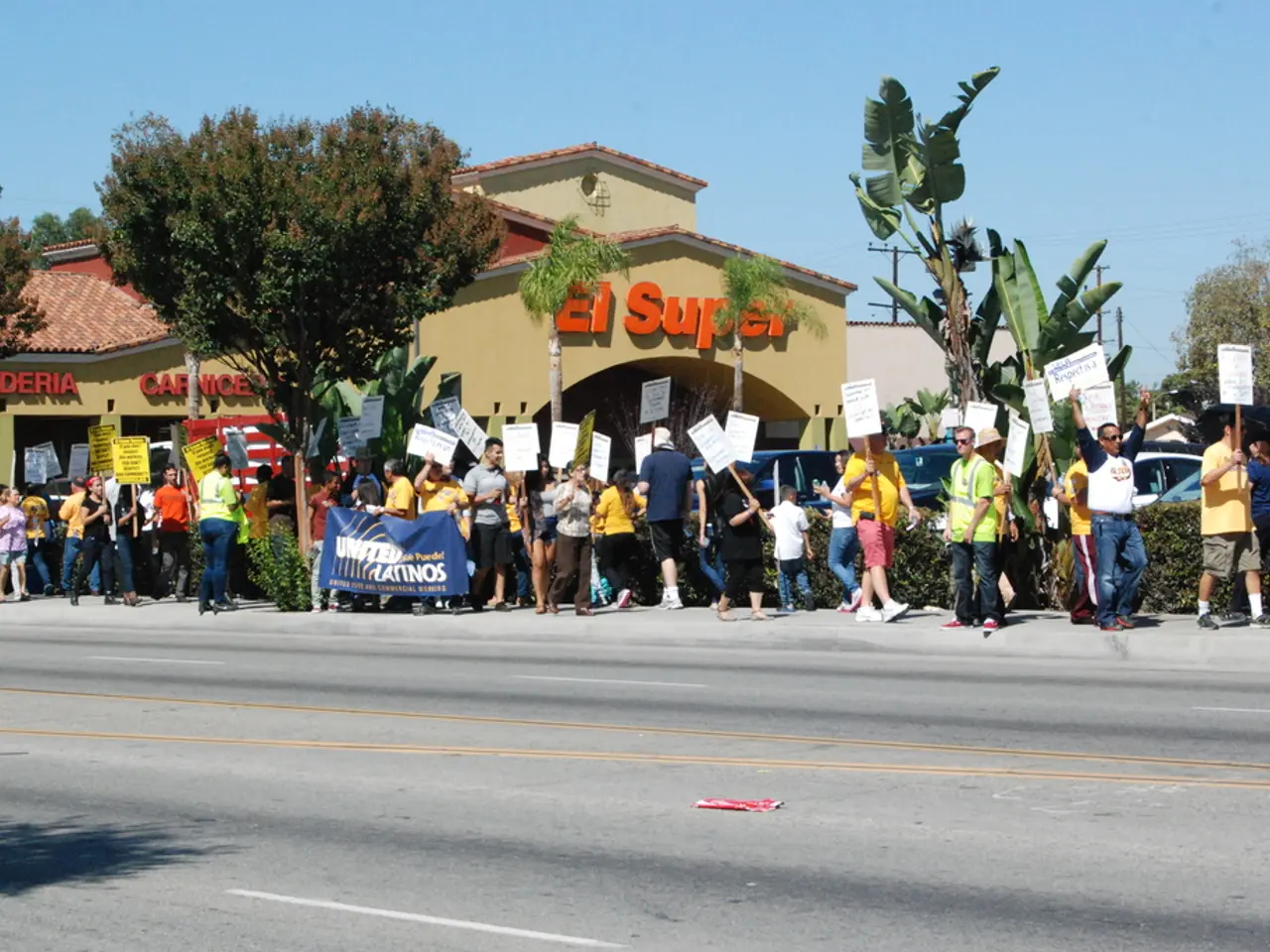Strategies for Political Campaigns: Reaching Out to Millennials and Generation Z Voters
In today's digital age, political campaigns are increasingly leveraging audience insights to engage more effectively with millennials and Gen Z voters. By understanding the unique media consumption habits, communication preferences, and values of these demographics, campaigns can create targeted strategies that resonate and drive voter turnout.
One key strategy is to **leverage social media platforms favored by each generation**. For instance, millennials are more likely to be found on Facebook, Instagram, and email, while Gen Z prefers TikTok, YouTube, Instagram Reels, and Discord. Successful campaigns, such as Deja Foxx’s and Zohran Mamdani’s, have utilised TikTok and social media storytelling to mobilise Gen Z voters by creating authentic, relatable content.
**Authenticity and relatable messaging** are crucial for both millennials and Gen Z. Campaigns that present behind-the-scenes content, grassroots involvement, and direct engagement perform better, as seen in Mamdani’s campaign which combined online presence with active community engagement.
**Customizing messaging by generation** is also essential. Millennials respond well to lifestyle aspirations and practical value-oriented messaging, while Gen Z prefers direct, transparent, and purpose-driven communication that connects to social issues or disenfranchisement.
**Demographic segmentation data** can be used to personalise outreach, grouping potential voters based on age, platform preference, location, and interests. Aligning channel choice and messaging to these segments increases engagement and conversion.
**Incorporating smart streaming TV advertising** is another effective approach, as both Millennials and Gen Z spend substantial time on streaming platforms.
**Bypassing traditional legacy media when possible** can level the campaign playing field, especially for lesser-known candidates, by sidestepping traditional gatekeepers.
To ensure campaign messaging stays relevant, daily or weekly updates are essential to adapt to shifting sentiment and events. Metrics for campaign success include engagement rates, conversion rates (e.g., sign-ups, donations), sentiment improvement, and target voter outreach.
Analytics platforms, CRM systems, social listening tools, and AI-based segmentation software are used for audience insight generation. Real-time feedback from voters via polls or social interaction helps campaigns refine messaging continuously.
**Sentiment analysis using NLP tools** evaluates public tone and perception within social media posts and comments. Hosting events like meetups, rallies, and roundtable discussions can help engage millennials and Gen Z audiences.
AI-driven segmentation can dynamically regroup audiences based on new patterns in behaviour or sentiment in real time. Audience insights can help identify emerging concerns or misinformation during crisis response.
In conclusion, by combining detailed demographic insights, platform-specific approaches, authentic and value-driven messaging, and a mix of digital channels—especially emerging social media and streaming TV—campaigns can create engagement that translates into votes. Contact Insights for more information about their audience insights services for political campaigns, who have years of experience researching both millennials and Gen Z, and can help your campaign target these demographics effectively.
- Political campaigns are utilizing audience insights to engage effectively with millennials and Gen Z voters in the digital age.
- Understanding media consumption habits, communication preferences, and values of these demographics is key for creating targeted strategies.
- Social media platforms favored by each generation should be leveraged for successful campaigns.
- Millennials are typically found on Facebook, Instagram, email, while Gen Z prefers TikTok, YouTube, Instagram Reels, and Discord.
- Deja Foxx’s and Zohran Mamdani’s campaigns used TikTok and social media storytelling to mobilize Gen Z voters with authentic, relatable content.
- Authenticity and relatable messaging are critical for both millennials and Gen Z.
- Successful campaigns perform better by presenting behind-the-scenes content, grassroots involvement, and direct engagement.
- Customizing messaging by generation is important; millennials respond to lifestyle aspirations and practical value-oriented messaging, while Gen Z prefers direct, transparent, and purpose-driven communication.
- Demographic segmentation data can be used to personalize outreach, grouping potential voters based on age, platform preference, location, and interests.
- Aligning channel choice and messaging to these segments increases engagement and conversion.
- Incorporating smart streaming TV advertising is effective, as both millennials and Gen Z spend substantial time on streaming platforms.
- Bypassing traditional legacy media can level the campaign playing field for lesser-known candidates.
- Engagement rates, conversion rates, sentiment improvement, and target voter outreach are metrics for campaign success.
- Analytics platforms, CRM systems, social listening tools, and AI-based segmentation software are used for audience insight generation.
- Real-time feedback from voters helps campaigns refine messaging continuously.
- Sentiment analysis using NLP tools evaluates public tone and perception within social media posts and comments.
- Hosting events like meetups, rallies, and roundtable discussions can help engage millennials and Gen Z audiences.
- AI-driven segmentation can dynamically regroup audiences based on new patterns in behavior or sentiment in real-time.
- Audience insights can help identify emerging concerns or misinformation during crisis response.
- By combining detailed demographic insights, platform-specific approaches, authentic and value-driven messaging, and a mix of digital channels—especially emerging social media and streaming TV—campaigns can create engagement that translates into votes.
- Contact Insights for more information about audience insights services for political campaigns, who have years of experience researching both millennials and Gen Z.
- Political campaigns can also benefit from resources like books, education & self-development books, and personal growth books on branding, marketing, and audience targeting.
- Implementing mindfulness practices can help campigns stay focused and make informed decisions during high-pressure situations.
- Social media can serve as a platform for promoting ads, services, resources, and entertainment content relevant to both millennials and Gen Z.
- Movies and TV shows can provide insights into the values, interests, and cultural contexts of these demographics.
- Policy and legislation in areas like war and conflicts, accidents, fires, learning, goal-setting, skills-training, sports, football, and car-accidents have implications for millennials and Gen Z voters.
- Celebrities, whether actors, musicians, or athletes, often play significant roles in popular culture and can impact political awareness, enthusiastically engage in online-education platforms, and participate in job-search initiatives.
- Sports, such as football, NFL, WNBA, baseball, hockey, golf, sports-betting, basketball, NCAA Basketball, MLB, NHL, racing, American Football, NBA, Masters, grand-prix, horse-racing, tennis, and sports-analysis, provide engaging avenues to engage millennials and Gen Z in various ways.
- Weather, NCAAC football, and general news, crime and justice, and pop-culture, like sci-fi and fantasy, can be sources of shared interests and can help bridge the gap between campaigns and target voters.






